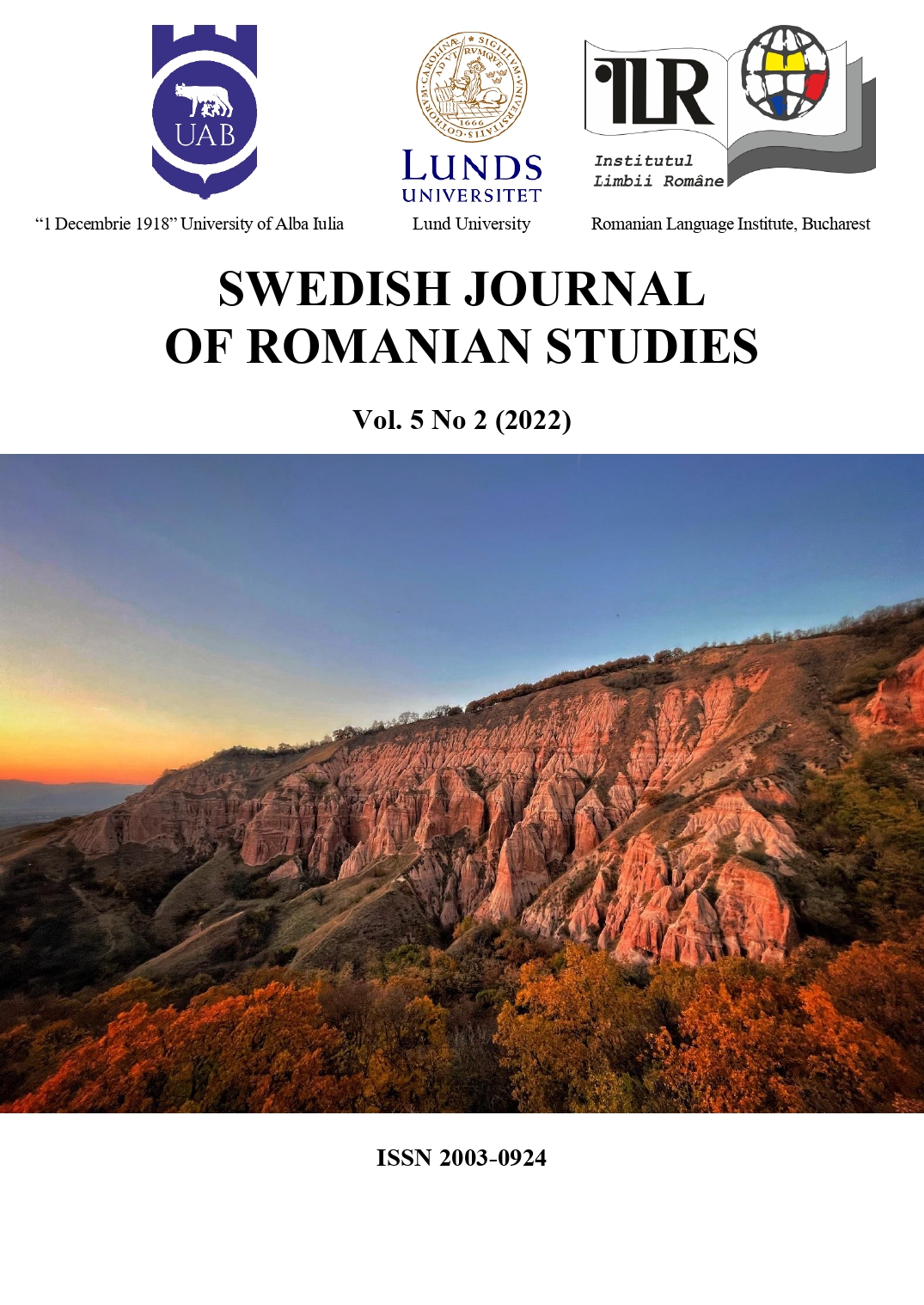Content based learning-Task based learning-Problem based learning in Teaching Romanian Language to Foreign Students
DOI:
https://doi.org/10.35824/sjrs.v5i2.23924Keywords:
Content-based learning, Task-based learning, Problem-based learning, communicative approachAbstract
When talking about the process of Romanian language teaching, learning and using the Romanian language, leads us to the idea that we are faced with a considerably large number of variables. No matter what happens during the process, there is always something good to acquire and put into practice. Despite this “methodological painkiller”, boosting efficiency is the determining factor. In the practical, everyday management of classes, it is common knowledge that it is more challenging for a teacher to do something “inappropriate” than to do it “correctly”. However, considering that almost all actions count, the teachers’ exclusive attention to the process comes as a necessity. As for the rest of the process, the things we have mentioned above are to be seen in a different way. Natural Romanian usage involves fluency and one can get the impression that Romanian is not difficult to learn and activate. It is pointless to say that this is a determining factor in encouraging students to be part of the “effort”. In contrast, artificial, highly automated Romanian tends to change into a nightmare for both teachers and learners. The context of CBL, TBL and PBL is represented by Communicative language teaching. The communicative approach was developed mainly by British applied linguists in the 1980s as a reaction against grammar-based approaches like situational language teaching and the audiolingual method. Strange as it may seem, the foreign language being taught during modern/current classes tends to lose the center of attention in this context. The main focus of attention is no longer on language but on some relevant subjects. Indeed, language should not be an end but a means. In different terms, the process works mostly with message-focused activities rather than form-focused ones. When it comes to modern approaches, the term “learning” becomes a very general one, mainly biased in favor of acquisition.
References
Harmer, J. (2001). How to Teach English. Malaysia: Longman.
Harmer, J. (2010). How to Teach English. 2nd Edition. China: Longman.
Harmer J. (2012). Teacher Knowledge. China: Pearson Education Limited.
Hmelo-Silver C. (2004). Problem-Based Learning: What and How Do Students Learn? In Educational Psychology Review. Vol. 16, No. 3, September 2004. 237.
Hmelo-Silver, C.E & Howard S.B. (2006) Goals and Strategies of a Problem-based Learning Facilitator. In The Interdisciplinary Journal of Problem-based Learning, volume 1, no. 1 (Spring 2006).
Hung Woei (2015). Problem-based learning. 488-489 Retrieved http: //www.aect.org/edtech/edition3/ER5849x_C038.fm.pdf, accessed on 25.03.2015 DOI: 10.1007/978-1-4419-1428-6_210
Johnson K. (2013). An Introduction to Foreign Language Learning and Teaching. New York: Routledge.
Palincsar A.S. (1998). Social constructivist perspectives on teaching and learning. In Annual Review of Psychology, 45, 1998. 345-375
Richards J., Schmidt R. (2010). Dictionary of Language Teaching & Applied Linguistics. Great Britain: Longman.
Schoenfeld A. H.(1998). Toward a theory of teaching-in-context. In Issues in Education, 4. 1-94.
Thornbury S. (2007). How to teach speaking. Great Britain: Longman.
Willis J. (2013). A Framework for Task Based Learning. Great Britain: Longman
Downloads
Published
How to Cite
Issue
Section
License
Copyright (c) 2022 Gabriel-Dan Bărbuleț

This work is licensed under a Creative Commons Attribution-NonCommercial 4.0 International License.
Authors who publish with this journal agree to the following terms:
a. Authors retain copyright and grant the journal right of first publication with the work simultaneously licensed under a Creative Commons Attribution-NonCommercial 4.0 International License that allows others to share the work with an acknowledgement of the work's authorship and initial publication in this journal.
b. Authors are able to enter into separate, additional contractual arrangements for the non-exclusive distribution of the journal's published version of the work (e.g., post it to an institutional repository or publish it in a book), with an acknowledgement of its initial publication in this journal.
c. Authors are permitted and encouraged to post their work online (e.g., in institutional repositories or on their website) prior to and during the submission process, as it can lead to productive exchanges, as well as earlier and greater citation of published work (See The Effect of Open Access).

